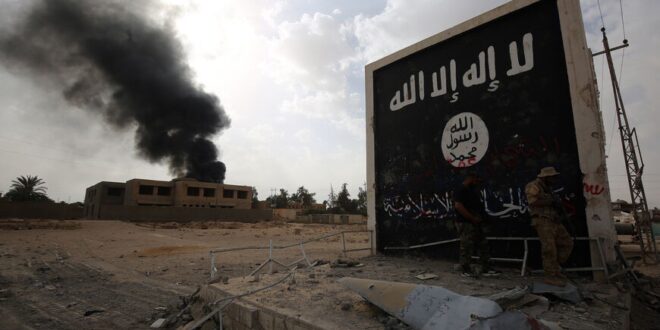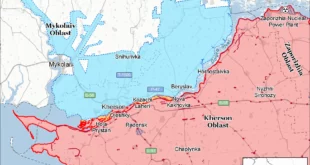The Turkish judiciary’s weakness in dealing with Islamic State suspects comes under the spotlight after a bombshell report on how a Syrian man suspected of ordering the burning to death of two Turkish soldiers in 2016 walked free from court and lived as a shopkeeper in Turkey.
The first time that Turkey faced the deadly threat of the Islamic State (IS) on its soil was in March 2014, when three foreign IS militants opened fire at a checkpoint in the province of Nigde, killing two members of the security forces and a civilian. The culprits were sentenced to life but only after a controversial trial.
Scores of other cases against IS suspects have been marked by judicial oddities and what many observers see as obtrusive leniency on the part of the Turkish judiciary. In a country where peaceful political dissidents could languish in jail for years without conviction, many IS defendants have walked free or benefited from sentence reductions under “effective remorse” provisions, as Al-Monitor reported last month.
Yet, few cases have been as striking as Jamal Abdul Rahman Alwi, who allegedly ordered the burning to death of two Turkish soldiers that the radical group had captured in northern Syria. A video released by IS in December 2016 showed the pair being hauled from a cage before being bound and torched. Despite the huge outpouring of fury on social media at the time, the Turkish government kept mum on the incident.
It turns out that Alwi, who allegedly served as an IS qadi – or Islamic court judge – in northern Syria, lived as a free man and ran a bird shop in Turkey’s border province of Gaziantep, even though he had been charged with being a senior member of IS and remained under probe in connection with the gruesome execution.
A Sept. 17 report by investigative journalist Ismail Saymaz told the Turkish public how the 64-year-old Syrian was arrested in June 2020 and went on trial in September that year, but the court in Gaziantep released him in March, pending trial. The court ruled that sufficient evidence had been collected in the case and the suspect was not in a position to obfuscate evidence, citing also unspecified personal and familial excuses by the defendant.
Following the public outcry, Alwi was rearrested Sept. 18. Had it not been for Saymaz’s report, Alwi would have certainly continued to run his shop in Gaziantep and perhaps engage in other, less overt activities. And the author of the report might have ended up behind bars for criticizing the authorities had he not been as well-known as Saymaz, as past cases involving local reporters show.
Among the reasons the authorities cited for Alwi’s rearrest were witness statements, including from his wife, that he gave or approved the decision to burn the two soldiers to death; the gravity of the charges he might face; and a strong suspicion he might attempt to escape or hide. The move, however, appeared driven more by public pressure amid the huge indignation that Saymaz’s report sparked on social media.
When the court released Alwi in March, judicial control measures banned him from traveling abroad, but those measures were lifted in June. In other words, Alwi was given ample opportunity to leave the country legally. The fact that he stayed in Gaziantep suggests he felt safe in Turkey and perhaps even counted on the leniency of the Turkish judiciary.
To give credit where credit is due, Turkey’s security forces and intelligence have relentlessly pursued IS for years. The media abound with reports about anti-IS raids and the capture of IS-linked suspects, many of them foreign nationals who fled to Turkey after the IS defeat in Syria and Iraq. The annual number of such operations has reached about 1,000 in recent years.
But what happens after the suspects are handed over to the judiciary is a different story. Only a small number end up behind bars, while the majority are released after questioning. And even if officially charged, very few remain behind bars while standing trial as the authorities stumble in dealing with crimes committed in Syria and Iraq. The breakup of diplomatic ties between Ankara and Damascus and the lack of expeditious cooperation with Baghdad results in protracted probes and prosecutions. Thus, Turkey has become a relatively safe country in the eyes of IS militants who have committed crimes in Syria or Iraq.
Another major factor is the lack of political support for IS-related cases. The Turkish judiciary today is largely controlled by the government. The government’s occasional statements about fighting IS fade in comparison with its zeal for clamping down on political dissent and criticism.
Furthermore, an organized group of Turkish lawyers has emerged who sympathize with IS and similar extremist movements and launch campaigns against judicial officials over decisions not to their liking. Such pressures have further discouraged the judiciary.
As the Alwi case suggests, Turkish judicial officials appear wary of making bold decisions against IS suspects, even though Ankara has designated IS as a terrorist group, and often pass on cases they deem as too risky.
All these factors ultimately result in weakness in tackling IS and other violent Salafi-jihadi groups, no matter how hard the security forces try to track down and capture suspects. The Alwi case is a striking example of how it could all become a legal freak show.
 Eurasia Press & News
Eurasia Press & News




